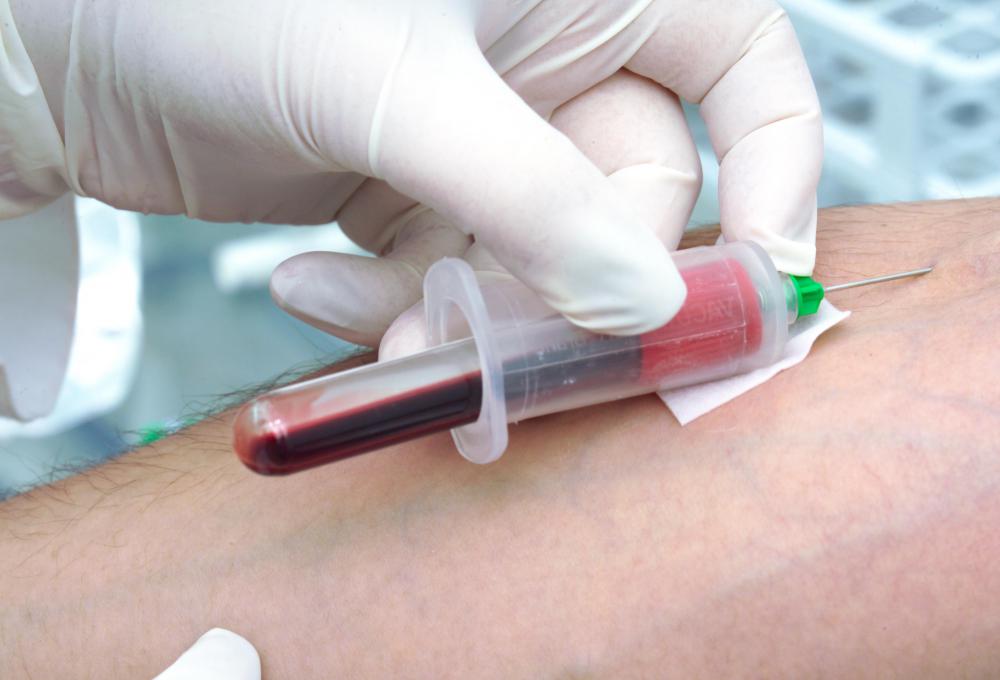At WiseGEEK, we're committed to delivering accurate, trustworthy information. Our expert-authored content is rigorously fact-checked and sourced from credible authorities. Discover how we uphold the highest standards in providing you with reliable knowledge.
How do I Become a Phlebotomist?
A phlebotomist is a health care worker who specializes in drawing blood. They work in hospitals and laboratories. To become a phlebotomist, the interested person must take coursework at an educational institution like a community college or vocational institute.
The training to become a phlebotomist is much more varied than some might expect. Coursework involves classes in anatomy and physiology of the circulatory, lymphatic, respiratory, urinary, muscular and skeletal systems. Students study blood cell composition in particular since that is the primary substance they will be working with. On-the-job safety and emergency skills are an important part of training since blood samples can spread deadly infectious diseases. Many schools also offer classwork in communication, and interview and employment skills.

Practical hands-on training is a large part of the work needed to become a phlebotomist. Students will learn how to obtain blood by capillary or venipuncture. There are various techniques used for different types and ages of people. Cardiopulmonary Resuscitation (CPR) is usually part of the coursework as well, as it is a necessary skill in any health care related job.

Additional hands-on courses involve specimen handling, labeling, sorting and preparation for testing. All of these are intended to keep the process of blood sampling as organized and error proof as possible. Someone who wants to become a phlebotomist will be charged with handling specimens and will be responsible for sensitive patient information. Proper handling is absolutely necessary to protect the integrity of samples, the outcomes of test results and ultimately the satisfaction of the patient.
When seeking an institution for phlebotomy training, potential students should look for an accredited school. There are several accrediting agencies including the: National Commission for Certifying Agencies (NCCA), National Accrediting Agency for Clinical Laboratory Sciences (NAACLS), Accrediting Bureau of Health Education Schools (ABHES), National Organization for Competency Assurance (NOCA), and the Commission on Accreditation of Allied Health Education Programs (CAAHEP). Most colleges will be accredited, but it is always a good idea to double check their credentials so that tuition and time is not wasted.
Each state has its own set of requirements for those who want to become a phlebotomist, so state mandates should always be checked. Most accredited schools will provide this information to their students. Some require their phlebotomists to be registered with one of several professional certification agencies like the American Association of Clinical Pathologists, American Technologists, American Association of Medical Personnel, and the National Credentialing Agency. These organizations provide continuing education and training for those in the medical profession.
AS FEATURED ON:
AS FEATURED ON:












Discussion Comments
A good phlebotomist is worth his or her weight in gold. Venipuncture is one of those things someone is either good at, or not. There's usually not an in-between.
My mother is a retired lab tech and phlebotomist and for many years, she was the only one I allowed to draw blood from me. She was good at it. She had the "touch," and it's something you have to have if you want to be good at your job and not hurt people, however unintentionally.
If you find that you're routinely hurting people as you're training, you probably need to find something else to do.
Post your comments